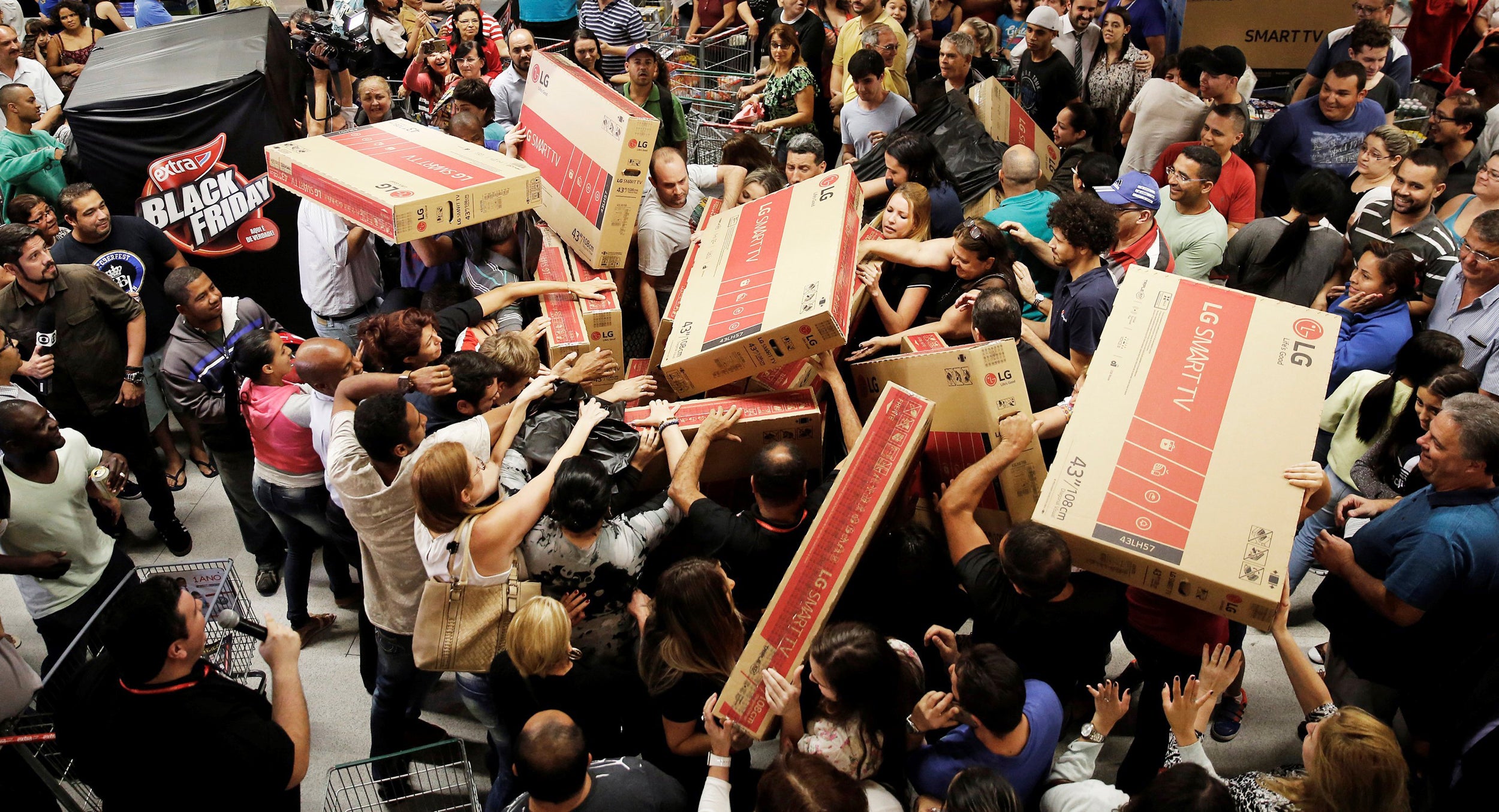The trappings of Christmas often bring up romanticized images of decorated buildings and happy children ripping open packages under the tree. It certainly looks nice. But Christmas is a holiday we sorely need to rethink.
John W. Traphagan, Ph.D.
Professor, Department of Religious Studies, Department of Anthropology
Professor, HDO
HDO One-Day Professional Seminars: Ethics, Culture, and Leadership and Just Stop: Zen, Stress, Anxiety, and Uncertainty
December 21, 2021

Chestnuts roasting. Jack Frost nipping. Yuletide cheer. The Budweiser Clydesdales trotting through snow-covered paths on the way to some bucolic rural estate wrapped with pine wreaths and delicate, white lights. The trappings of Christmas often bring up romanticized images of decorated buildings and happy children ripping open packages under the tree. It certainly looks nice. But Christmas is a holiday we sorely need to rethink.
To begin, in a religiously pluralistic society like the U.S., it’s rather hypocritical for a major holiday to be associated with a specific religion. If we truly want to align ourselves with values of religious freedom, then all our holidays should be entirely secular. Therefore, we should eliminate Christmas as a national holiday and treat it like we do Halloween—a fun day for those who want to participate, but businesses, schools, and government offices remain open. We could easily extend the New Year holiday to make up for the lost day. And, in any case, Christmas is rather redundant with Thanksgiving (a holiday with its own problems to be sure) only a month earlier. They are basically the same thing—we eat the same foods and gather with family and friends around a feast.
Having written that, I can already hear opponents shouting, “but we need all of those Christmas sales to keep businesses afloat.” Maybe. But businesses in other countries, like Japan, seem to do just fine without an annual holiday dedicated to greed and mass consumption. It’s true that in Japan bakeries make a little extra on Christmas cakes, but there are no Black Fridays nor Cyber Mondays devoted to generating huge sales of items most people don’t need, don’t want, and will rarely use.
This brings me to the real problem with Christmas. It’s a social monument to monumental waste. In a world in desperate need to build values of sustainability and environmental conservation, Christmas challenges our future by encouraging mass production and consumption of things we don’t need and instilling values of consumption, acquisition, and greed in our children. Kids write letters to the lie that is Santa asking for long lists of stuff, most of which they will only use for twenty minutes after packages are torn open on Christmas morning, generating considerable waste in the form of once-used wrapping paper. Parents encourage these values by stacking mountains of goodies under the tree—more is always better, right? And stores begin marketing their Christmas items in August to make sure that they sell as many useless decorations—why not just use last year’s decorations?—as possible. The environmental footprint of Christmas is not only evident in the wasted products and paper bought for the holiday, but also in the fact that between the U.S. and Europe, about 35 million trees are chopped down annually so that they can sit in our houses for a few weeks and then be discarded.
In short, the holiday is an old testament to the core values of a consumption-based society and economy that have brought us to the environmental crisis we face.
So, what can we do? The easiest thing would be to quit Christmas altogether. Think of how nice December would be without sappy Christmas tunes and tacky griswaldian light displays. I suppose I’d miss the pretty wreaths, though. And it’s true that sometimes the light displays can look rather attractive. I grew up in New England and have always thought that the holiday season is aesthetically pleasing there. I’d miss that.
Perhaps a more reasonable alternative would be to change the values we express through Christmas. Instead of killing millions of trees, we could plant millions. Instead of encouraging our kids to get excited about what they will get from that great god of acquisition, Santa, we could support them in giving things of value, like clothing or food, to those in need without expecting anything in return. And even if we still want to give presents to loved ones, we can do so with discussion of why valuing less is better than valuing more as a way of building a sustainable economy and protecting the environment. And, of course, we can focus on giving only those things that will actually be used and valued.
What I am suggesting here is that we alter Christmas from a day that reinforces values of consumption, acquisitiveness, and greed to one that undermines those values. Why? Because in many ways Christmas is the most pernicious of holidays. It encourages the types of values that have led to environmental crisis, massively unequal distribution of wealth, and an emphasis on satisfying one’s own needs and wants over considering those of others and of society in general. It’s sort of the holiday version of the anti-vax and anti-mask movements.
I know that in writing this, I will be called a Scrooge. And to that, I have but one response. We truly and urgently need to ask ourselves about the messages being encouraged and reinforced by our current approach to Christmas. They are not conducive to a sustainable future. Bah humbug.
John W. Traphagan, Ph.D. is a Professor in Human Dimensions of Organizations at the University of Texas at Austin. His most recent book is Embracing Uncertainty: Future Jazz, That 13th Century Buddhist Monk, and the Invention of Cultures, published by Sumeru Press and available on Amazon.
This article was originally posted at Fast Company.

